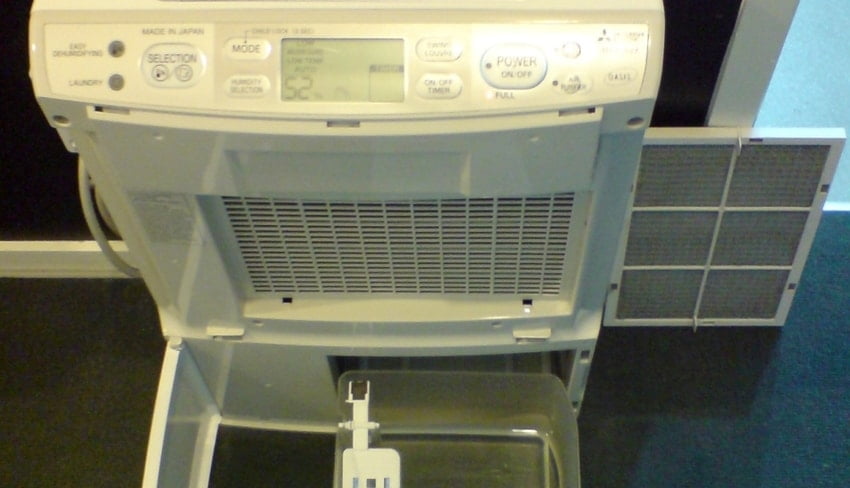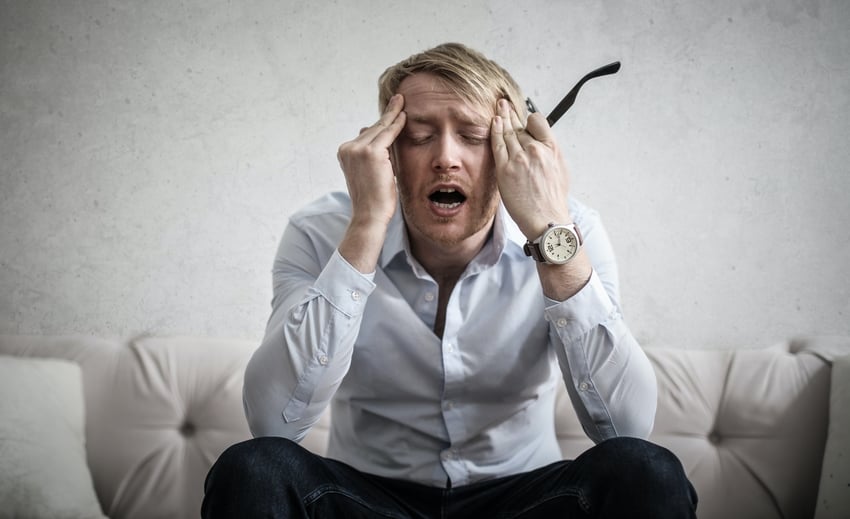Last Updated on July 3, 2022
When it is cold, typically in winters, you have to turn your heater ON, whether it is based centrally or a portable unit, to bring your home to comfortable temperatures. Generally, in cold season it is dry, so heater is coupled with a humidifier. But there is a possibility of high humidity due to weather or moisture problem in home. Can you use dehumidifier with heating in that case?
Running dehumidifier with heating ON will actually improve dehumidification by allowing condensation of water vapors in air at a higher temperature. Heater will also lower humidity in the environment, resulting in less running time of dehumidifier, consequently reducing power consumption.
There is a very interesting relationship between humidity levels in your home, heat added by your heating system and dew point (temperature below which condensation occurs). Believe it or not, heater will reduce humidity even if you are not using dehumidifier.
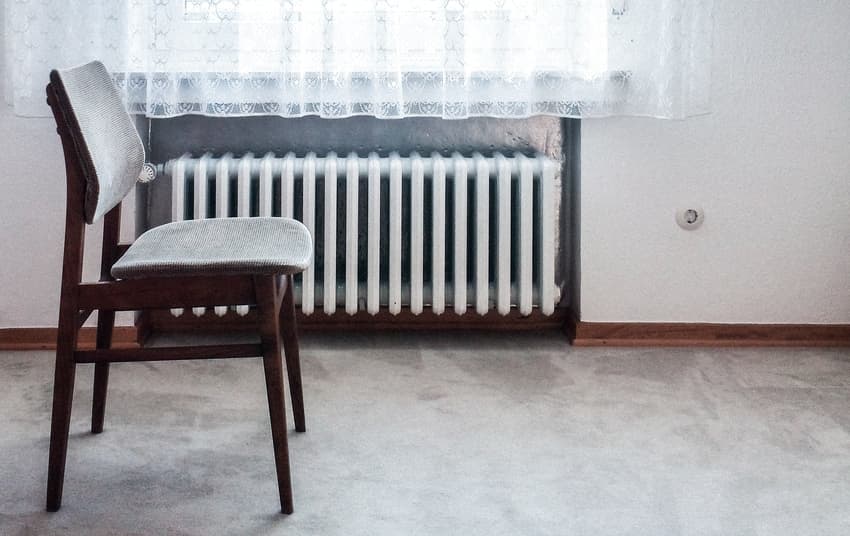
I know it looks a little confusing, don’t worry, I intend to explain everything regarding this topic in a very simple way. This article will help you understand if heating could actually work with dehumidifier, will it help and how to take advantage from it.
How Heating Your Home Can Actually Improve Humidity Level?
Let me share an interesting fact with you, before discussing compatibility of heater and dehumidifier…
If you are using any kind of heating system, humidity levels in your home, room or space that is being warmed will automatically decrease, regardless of running a dehumidifier.
First of all, let me clear a confusion regarding humidity for you, to understand how humidity can decrease just by heating, without extracting moisture from air.
Actually, when someone says ‘humidity’, most often they are not referring to the amount of water content in a particular fraction of air.
Rather word humidity is mostly referring to ‘relative humidity’. Which is actually the percentage of amount of water vapors air can hold, before it gives them out after saturation, what we see as condensation.
- The prior one is ‘absolute humidity’ and it will only be affected by actual amount of water vapors in air.
- However, the latter one (relative humidity), is based on air vapor holding capacity, that depends on pressure, which usually doesn’t change that much, and temperature.
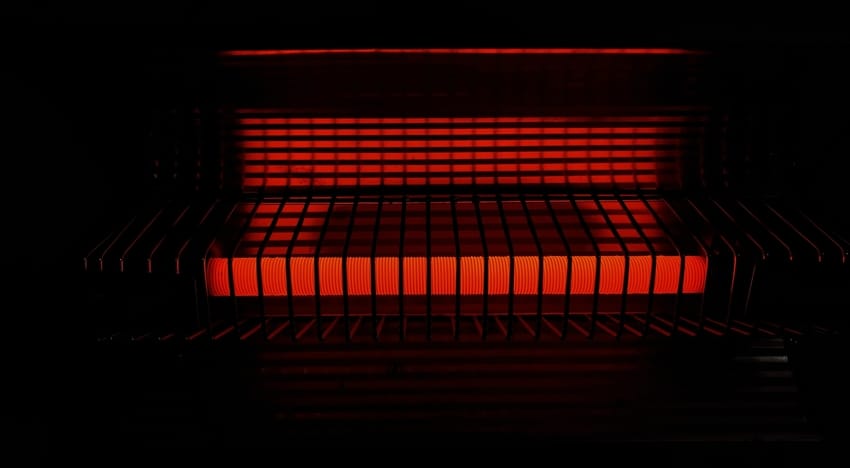
When you use heater to warm the room, temperature will increase and humidity, or more appropriately relative humidity, will reduce.
Thereby, without getting to the next step of extracting moisture by using a dehumidifier unit, you are reducing relative humidity in the room anyways by turning the heat on.
It gets better. Even if cool air with high humidity is coming from outside, without doing anything to extract moisture from it, just by warming your room, you will decrease its relative humidity and make it feel drier than outside.
Hope I was successful in clearing up nature of humidity for you, and effect on it by using heater in your living space.
Why You Still May Want to Run Dehumidifier with Heater?
As I said earlier, heater will reduce relative humidity just by raising temperature, without any change in the actual moisture content in air.
This means you might not need to run a dehumidifier unit, when using a heater, if suitable humidity levels are attained in the required space.
However, despite this fact, in some scenarios running heater only, without dehumidifier unit, will just not be enough. Let me discuss some common ones:
1. Heating Only Is Not Enough To Attain Required Humidity
Using a heater will surely decrease relative humidity in the room, by raising temperature, but you will not have the ability to reduce it to the extent you want.
This is due to the fact that reduction in relative humidity is only a byproduct of raising temperature. You do not have the option to select the exact value of humidity you want by running a heater only.
If this is the case, you will need to run a dehumidifier with your heating system. A dehumidifier will allow you to extract moisture in the air exactly according to your requirements.
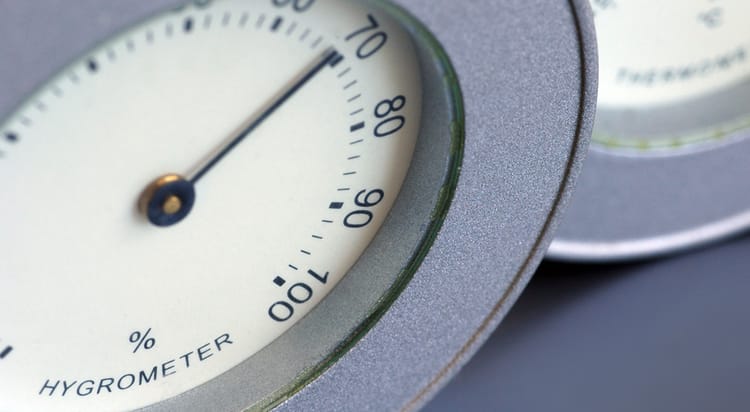
Most dehumidifier units have the option to select the exact relative humidity you want as a basic feature. Then there are additional features too, like automatic shutoff, drainage via condensate pump, intermittent fan etc.
By running dehumidifier with heater, you will be able to regulate relative humidity with full control.
2. High Amount of Moisture Due to Household Problems
It is not necessary that high humidity in your home is seasonal. There is a possibility that you have high moisture content because of certain household defects and damages.
Let me give you some examples …
First, relative humidity varies in your home for various zones, rooms and spots. Rooms that are exposed to high water content regularly will have more humidity in their environment.
For example, you can expect high humidity in bathrooms, kitchens and laundry rooms due to water used for bathing, cleaning dishes and washing clothes, respectively. This is the reason these areas are most susceptible to mold.
Thereby, heating any of these areas might not be enough to bring down humidity levels. So you will need to run a dehumidifier to bring down humidity to recommended range, which is generally 30 – 50%.
Second, you might have defective or damaged components that may be resulting in very high moisture content in your home.
For example, there is a possibility of water damage, leaked or clogged pipes, leaky faucets and taps, defective gutters, broken sump pump etc. and so many other water-related problems.
Similarly, many people face high humidity problems in their basements, due to poor insulation, especially if there are cracked foundations or water pipe leakage.
Water inside ground due to leaky foundations and moist unsealed insulation can also easily travel to attic through basement, crawlspace floors and walls.
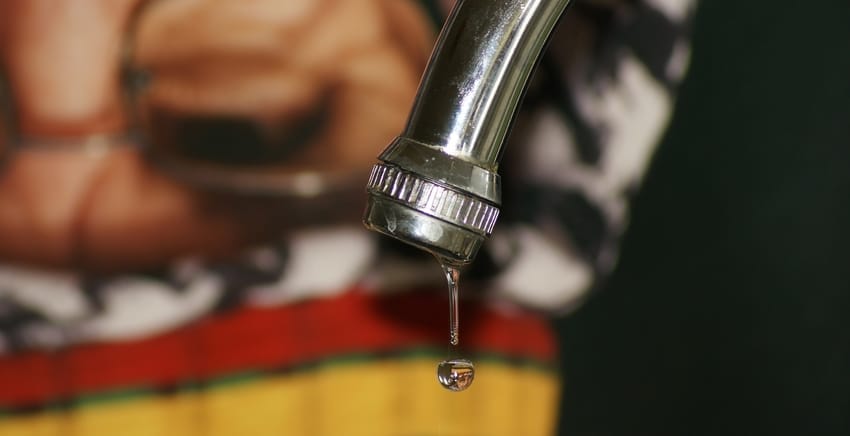
In this case, your heater will not be able to achieve recommended humidity. In fact, I doubt if using dehumidifier with it will resolve humidity problem.
To resolve this, primarily, you have to fix that specific high humidity source in your home. Then use dehumidifier to extract high amount of moisture, generated due to that source, from air as well as components of your home like floors, walls, furniture etc.
Effect On Dehumidifier Operation with Heating ON
I hope at this point in the article, you are able to realize when you may use dehumidifier with heater, and do you really need it, or the job of lowering relative humidity is sufficiently performed by heater alone.
Let’s say you have decided to use both heater and dehumidifier, considering all the factors I discussed.
What effect would heating your room or home have on dehumidification process?
Using a heater along with dehumidifier will affect it in following ways:
Easier Dehumidification Due to Higher Condensation Temperature
The principle on which dehumidifier runs is very simple. The goal of a dehumidifier unit is to pass air from and to the room, over cooling coils, maintained at a very low temperature.
All components in it like compressor, condenser, fan etc. assist in this purpose. The end goal is condensation of water.
But how low temperature of cooling coils exactly must be to condense humidity from air?
Air needs to be below a certain value of temperature, that is called dew point, to give out water in it by condensation.
Let me elaborate this in simply terms …
As you lower temperature of air in a space, saturation of water vapor in it increases. In a more simplified way, you can say that lowering temperature of air decreases its water vapor holding capacity.
Thereby, if you gradually decrease temperature, at a certain point, water vapor holding capacity of air will become equal to vapor it contains.
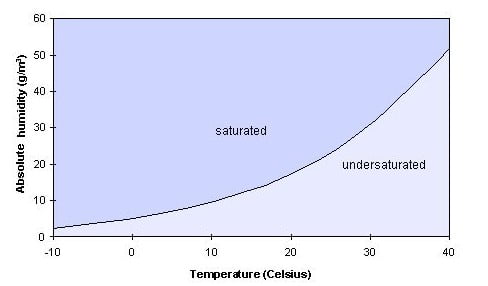
This is the time when saturation of air is 100% and exactly the temperature at which it occurs is known as dew point.
Another Interesting fact: Condensation will occur at comparatively higher temperature of cooling coils than normal, when you heat the space in your room or home.
As a result, cooling coils of your dehumidifier will not need to get temperature as low as they normally need to, in order to extract humidity from the air.
Consequently, you will get easier dehumidifier operation by heating the room. Dehumidifier will have to work less hard to condense the required amount of water vapors, in order to attain target humidity, this will save power.
Less Power Consumption by Quicker Dehumidification
Using heater will reduce power consumption by your dehumidifier. This is because running time of dehumidifier will reduce at higher temperature.
It is counterintuitive but true, if you run heater with dehumidifier, despite the fact that you are running two appliances, you may actually reduce your electricity bills, compared to running one.
If not less, even then electricity taken by your dehumidifier would be less with heater.
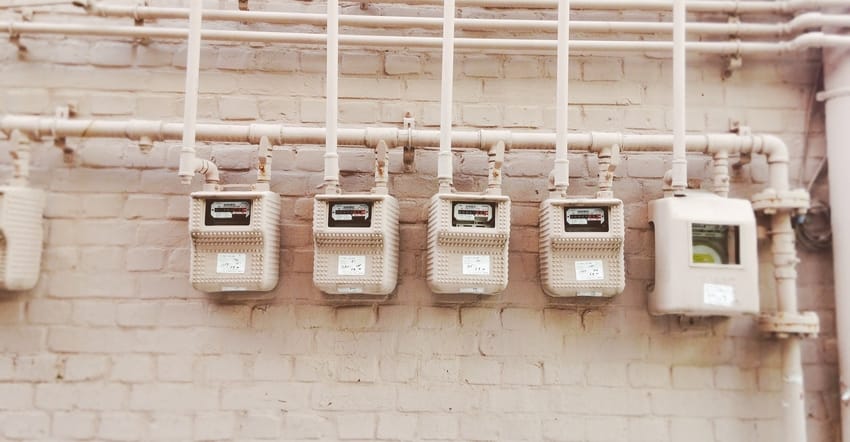
There is a reason behind it though. Let me explain it for you:
Temperature affects relative humidity inversely.
This is something related to what I discussed earlier. You raise the temperature of your home, humidity in your home will decrease.
As a result, dehumidifier will have to work for less time to get humidity to required level. Less activity means less power intake by your dehumidifier.
Also, I wouldn’t worry about compatibility issues by running both of them. They will work good with each other but just remember relative humidity needs to be high enough when you use them together. In order to know that, use the strategy that I discussed in this article.
First Run Heater Then Dehumidifier. Here’s Why …
I hope I was successful in sharing with you all you needed to know about compatibility of heater and dehumidifier, as well as the strategy for correct, better and efficient dehumidifier operation when running it with heater.
This particular section is about running timing of both appliances.
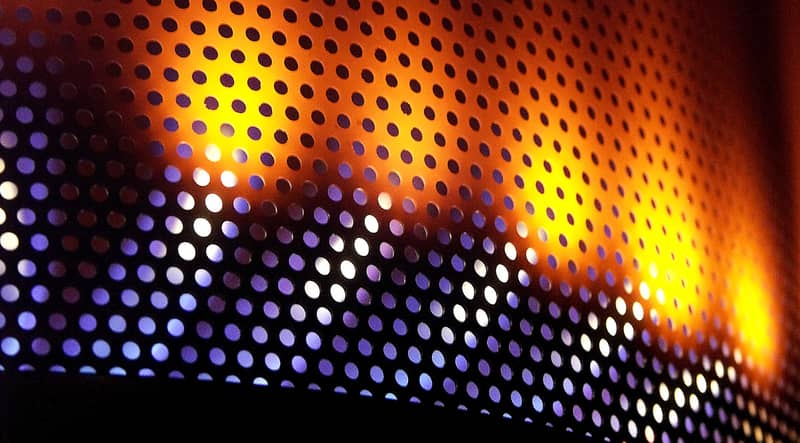
If you ever plan to run heater with dehumidifier, try turning your heater ON earlier to warm the space before using dehumidifier.
Doing this will benefit you in two ways:
- Turning heater ON earlier and warming your room will automatically lower relative humidity. This will allow your dehumidifier to run for much less time to achieve humidity you want.
Doing this will reduce power consumption by your dehumidifier. Less dehumidifier running time also means less noise time. Some units never allow turning their fan OFF. However, despite that, dehumidifier compressor will run for lesser time. - This will also help you realize if you really need to run a dehumidifier. If heater alone is able lower humidity as required, you don’t need to run a dehumidifier with it.
Further if your dehumidifier is not automatic (which I doubt it is not), or there is some defect in humidistat, it would run for very long periods of time. Result will be excessive dryness that is definitely not good for you and your home.

